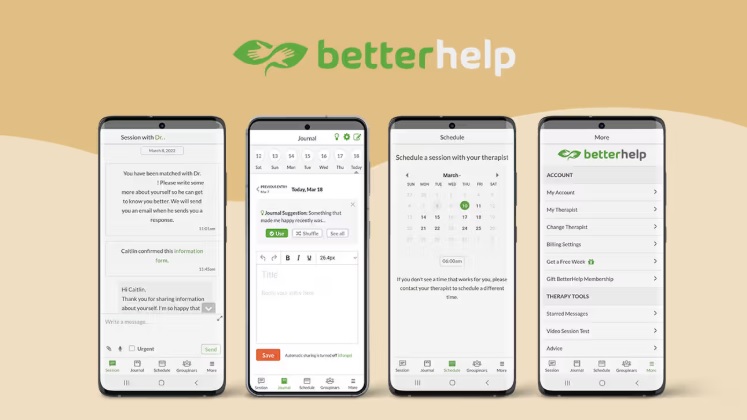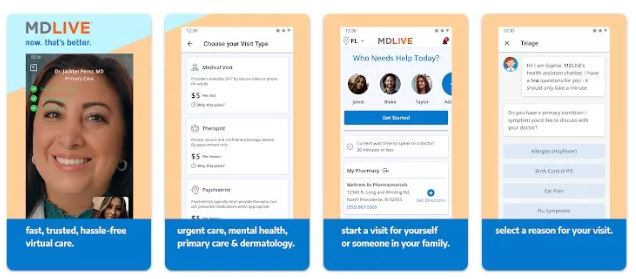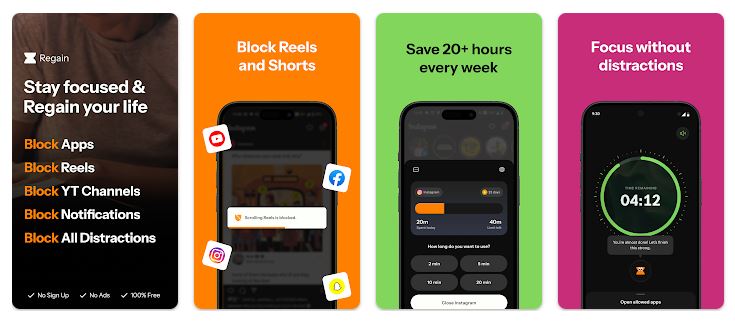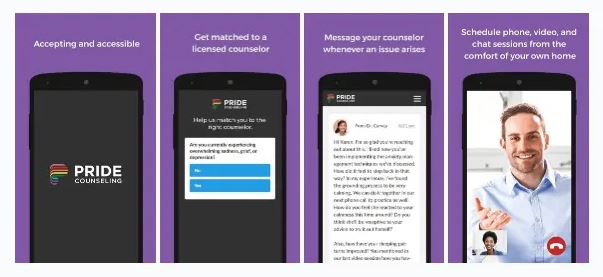Mental health care is undergoing a significant transformation with the rise of virtual therapy. In the United States, where access to traditional therapy can sometimes be limited by geography, cost, or time, virtual therapy has become a game-changer. Leveraging online platforms and even virtual reality, these innovative approaches make mental health support more accessible and effective than ever.
This article explores the meaning of virtual therapy, how virtual reality therapy is used, and highlights the best online therapy platforms, including those that accept insurance in the U.S.
What Is the Meaning of Virtual Therapy?
Virtual therapy, also known as online therapy or teletherapy, refers to mental health services delivered via digital platforms. This can include:
- Video calls: One-on-one sessions with a licensed therapist.
- Phone calls: Therapy sessions over the phone for convenience.
- Text-based support: Messaging a therapist through secure platforms.
- Apps: Platforms offering guided exercises, meditation, or even AI-based mental health support.
Virtual therapy allows individuals to access mental health care from the comfort of their home, breaking barriers like travel time, stigma, and scheduling conflicts.
How Is Virtual Reality Therapy Used?
Virtual reality therapy (VR therapy) is an advanced form of virtual therapy that uses immersive VR environments to help individuals address specific mental health issues. In VR therapy, patients wear a VR headset to experience controlled, simulated scenarios designed to treat their condition.
Common Uses of Virtual Reality Therapy:
- Exposure Therapy:
- Used to treat anxiety, phobias, and PTSD by gradually exposing patients to triggers in a safe, controlled VR environment.
- Example: A patient with a fear of flying can “board” a virtual airplane to work through their anxiety.
- Cognitive Behavioral Therapy (CBT):
- VR can simulate challenging situations, allowing therapists to guide patients through CBT techniques in real-time.
- Example: Someone with social anxiety can practice public speaking in front of a virtual audience.
- Pain Management:
- VR therapy is increasingly used to distract patients from chronic pain by immersing them in calming, interactive environments.
- Mindfulness and Relaxation:
- VR programs offer guided meditations in peaceful settings like beaches or forests, helping patients manage stress and improve focus.
Best Online Therapy Platforms in the U.S.
If you’re considering virtual therapy, here are some of the best platforms to explore:
1. BetterHelp

- What it offers: Individual therapy, couples counseling, and therapy for teens.
- Key features: Video, phone, and unlimited text messaging with licensed therapists.
- Pricing: Starts at $60–$90 per week (billed monthly).
- Insurance: Does not accept insurance, but offers financial aid for eligible users.
2. Talkspace

- What it offers: Therapy for individuals, couples, and psychiatry services.
- Key features: Messaging, video, and phone therapy.
- Pricing: Starts at $69 per week.
- Insurance: Accepts major insurance providers like Cigna, Optum, and Blue Cross Blue Shield.
3. Amwell

- What it offers: Online therapy and psychiatry, focusing on stress, anxiety, and depression.
- Key features: Licensed therapists available 24/7 via video.
- Pricing: $109–$129 per session (insurance may lower this).
- Insurance: Accepts many insurance plans, including Medicare.
4. MDLIVE

- What it offers: Therapy and psychiatry for anxiety, depression, and relationship issues.
- Key features: Virtual appointments with licensed mental health professionals.
- Pricing: $108–$284 per session, depending on the service.
- Insurance: Works with most major insurance plans.
5. Regain

- What it offers: Specialized in couples counseling.
- Key features: Text, video, and phone sessions focused on relationship issues.
- Pricing: $60–$90 per week.
- Insurance: Not covered by insurance.
6. Pride Counseling

- What it offers: Therapy for the LGBTQ+ community.
- Key features: Access to LGBTQ+-affirming licensed therapists.
- Pricing: $60–$90 per week.
- Insurance: Not covered by insurance.
Best Online Therapy That Takes Insurance
If affordability is a concern, consider platforms that accept insurance in the U.S.:
- Talkspace
- Accepts many major insurance providers.
- Amwell
- Offers coverage through Medicare and private insurers.
- MDLIVE
- Works with a wide range of insurance plans.
- Teladoc Health
- Insurance partnerships with multiple U.S. providers make therapy sessions affordable for most.

Benefits of Virtual Therapy
- Accessibility: Available anywhere with an internet connection.
- Affordability: Often cheaper than in-person therapy.
- Flexibility: Choose sessions that fit your schedule.
- Anonymity: Receive support in a private and secure environment.
Final Thoughts
Virtual therapy, including advanced tools like virtual reality therapy, is revolutionizing mental health care in the U.S. With numerous online platforms available, it’s easier than ever to find a service that fits your needs and budget. Whether you’re looking for insurance-covered therapy or specialized platforms, there’s an option for everyone.
Remember, seeking help is a sign of strength. Start your journey to better mental health today!



Pingback: Understanding Depression: Symptoms, Risk Factors, and Treatment Options - Wellness Readers Digest
Pingback: Understanding Holiday Stress: Causes, Impacts, and Ways to Cope - Wellness Readers Digest
Pingback: The Ultimate Guide to Longevity in Skincare: Prevent Aging and Maintain Youthful Skin - Wellness Readers Digest
Pingback: Understanding Chronic Stress: Causes, Symptoms, and Recovery - Wellness Readers Digest
Pingback: Creatine and Mental Health: Can This Popular Supplement Help with Depression? - Wellness Readers Digest
Pingback: The Silent Link Between Your Gum Health and Dementia Risk: A Q&A Guide to Protecting Your Brain - Wellness Readers Digest